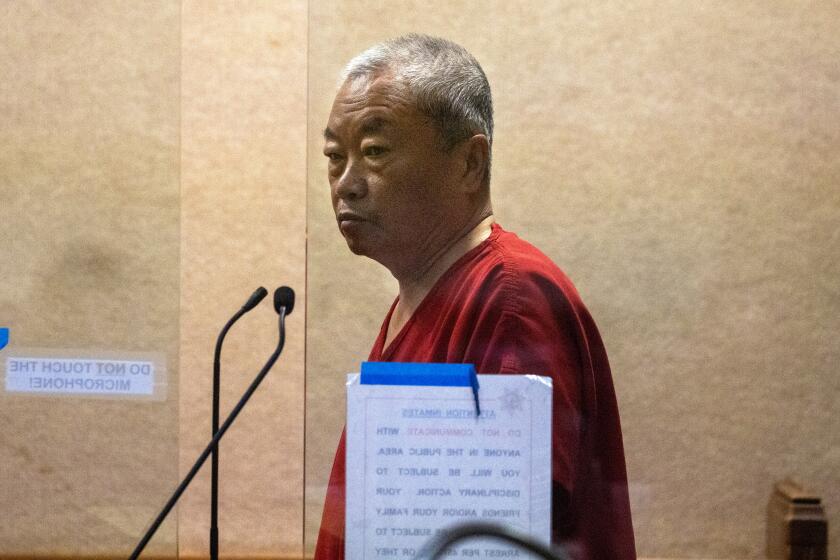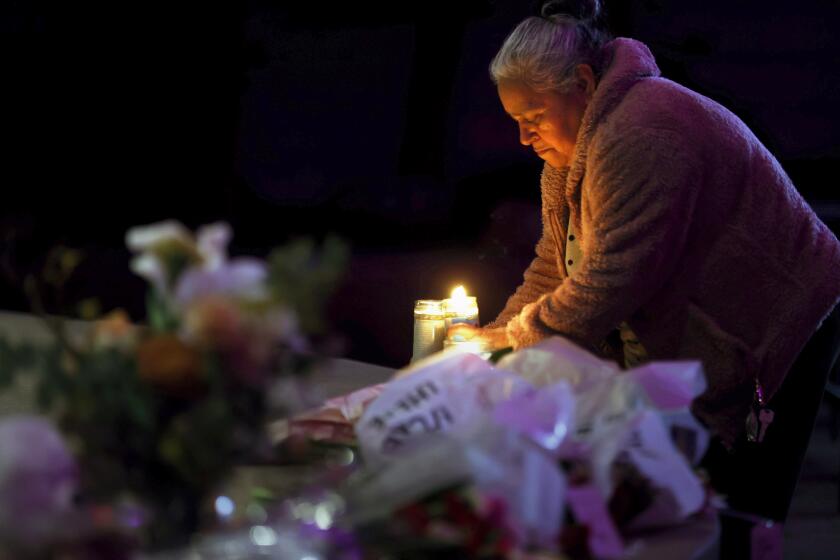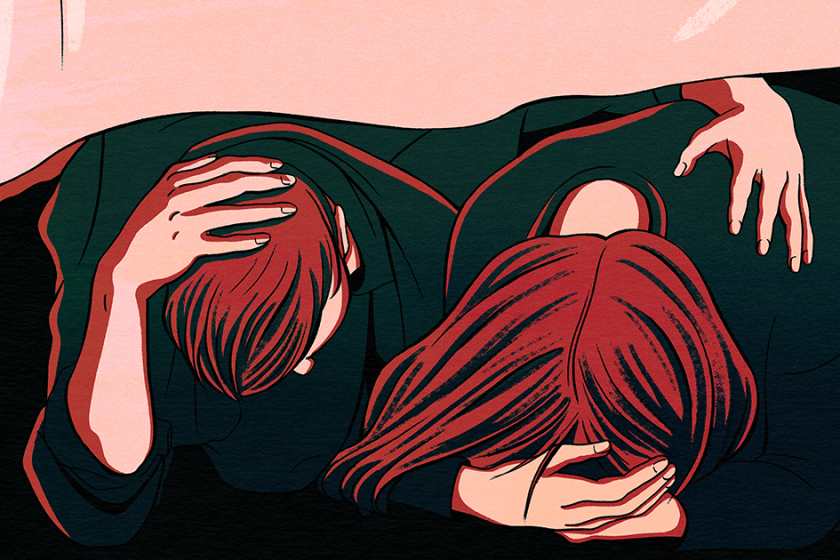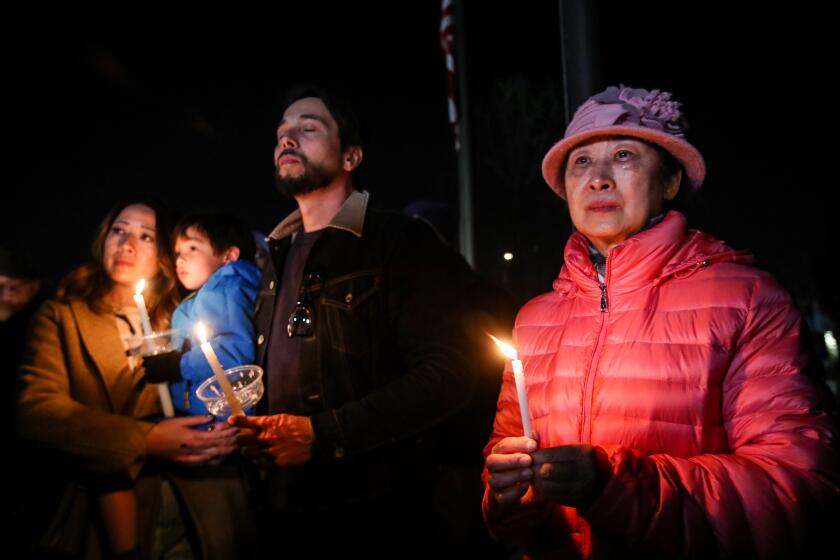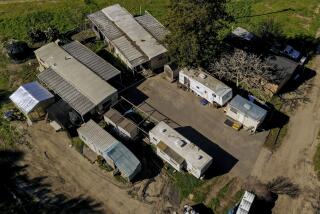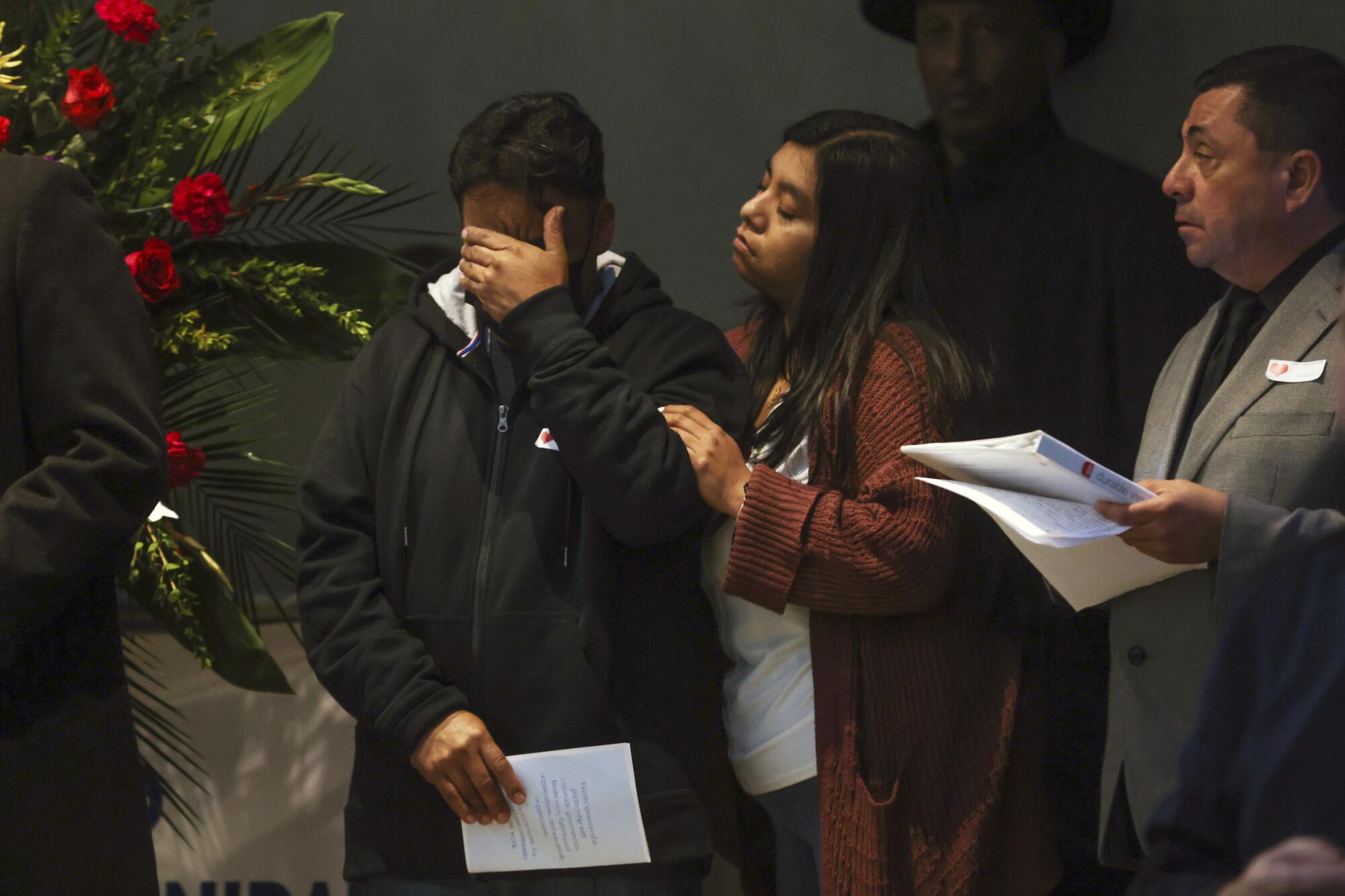
HALF MOON BAY, Calif. — Less than a week after seven people were killed in a mass shooting at two mushroom farms in Half Moon Bay, agricultural workers returned to work at the sites where their colleagues and neighbors were gunned down.
Workers began going back to Concord Farms last week, said Aaron Tung, whose family owns the farm. At California Terra Garden, operations resumed Saturday and it was fully staffed by Wednesday, said David Oates, a representative for the company.
“The employees wanted to go back to work,” Oates, a crisis public relations expert hired by California Terra Garden, told The Times. “We said whenever you’re ready to come back to work, as you’re comfortable, we’ll accommodate.”
The reopening of the farms comes as farmworker advocates have raised concerns about employees returning too quickly after the mass shooting, which unfolded Jan. 23 and which officials said was witnessed by staff and some children.
“They don’t want to go back to work, but they have to go back to work,” said Darlene Tenes, founder of Farmworker Caravan, an organization that supports farmworkers in the region and has also provided meals and services for the people affected. “How would you feel? Their co-workers just got shot.”
Chunli Zhao, accused of killing seven people in Half Moon Bay, told investigators an argument over a $100 bill for a damaged forklift prompted the shootings.
Some advocates have stressed that just posing the question to workers of whether they want to return to the job site is unfair. Many of the workers are immigrants and unaware of their rights, Tenes said. More than 40 adults and 19 children were displaced immediately after the shooting, most of them from California Terra Garden, she said.
“They have to [return] to survive,” she said, adding that returning could expose them to new trauma.
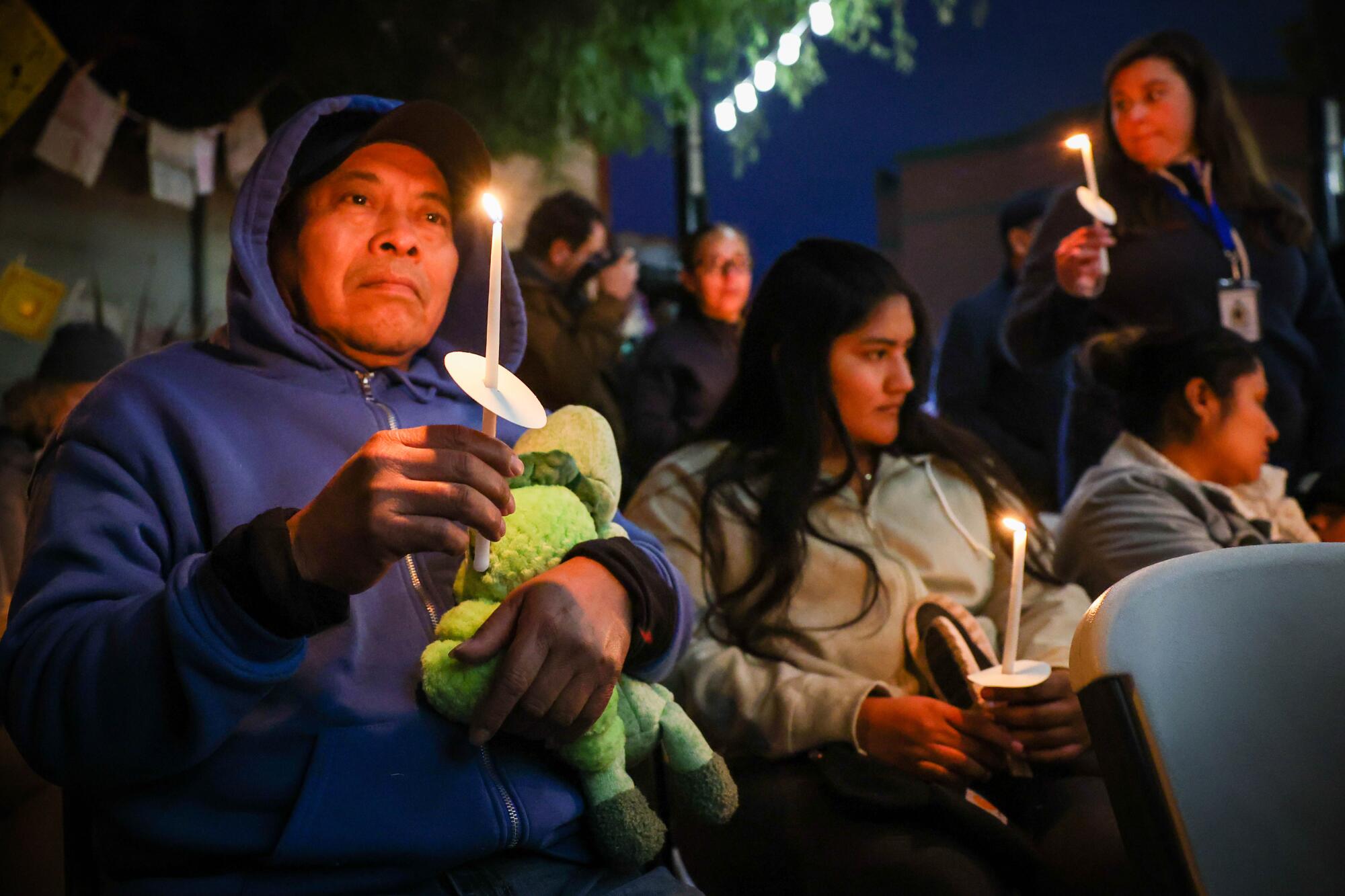
Oates disputed claims that workers were concerned about returning, and stressed that none of them were forced to return.
“I had no one who said they’re nervous to come back to work,” he said, adding that workers were not given a deadline to return. “That was at their decision, and we’re back to normal operations.”
Tung declined to say on the record whether staff expressed hesitation about returning, but said that “people love working for us.” One employee who was killed, Marciano Martinez Jimenez, had been on staff for more than 20 years.
Marciano Jimenez Martinez was also “a good son, brother, uncle and a great friend.” He and six others killed in the Half Moon Bay shootings are recalled by loved ones.
The quick return to work for farmworkers, a population that advocates said is already economically vulnerable, contrasts sharply with other mass shootings across the United States, where stores and schools have shut down for months after similar events.
The Walmart in El Paso, where 23 people were gunned down and killed, remained closed for three weeks after the 2019 shooting. Tops Friendly Market in Buffalo, N.Y., where 10 people were killed, stayed shut for two months in 2022. The Walmart in Chesapeake, Va., where a gunman killed six people in November, is still closed.
Oates said workers will still be given access to counselors.
Now local officials and advocacy groups are trying to give farmworkers options as they try to move forward from the tragedy, including the possibility of new homes or jobs for those who are interested.
“It’s not just any place for them, this is their lives. This is where they felt safe, until this happened.”
— Joaquin Jimenez, Half Moon Bay vice mayor
Whether they decide to return to the farms to work and live or look for new employment and homes will be up to the workers, organizers say.
This past weekend, religious groups and farmworker advocate groups issued a call to Half Moon Bay residents for short- and long-term housing for affected employees and their families — a monumental task in a coastal community in San Mateo County where the median home price is $1.2 million and the median monthly rent is more than $2,000, well past what agricultural workers can afford.
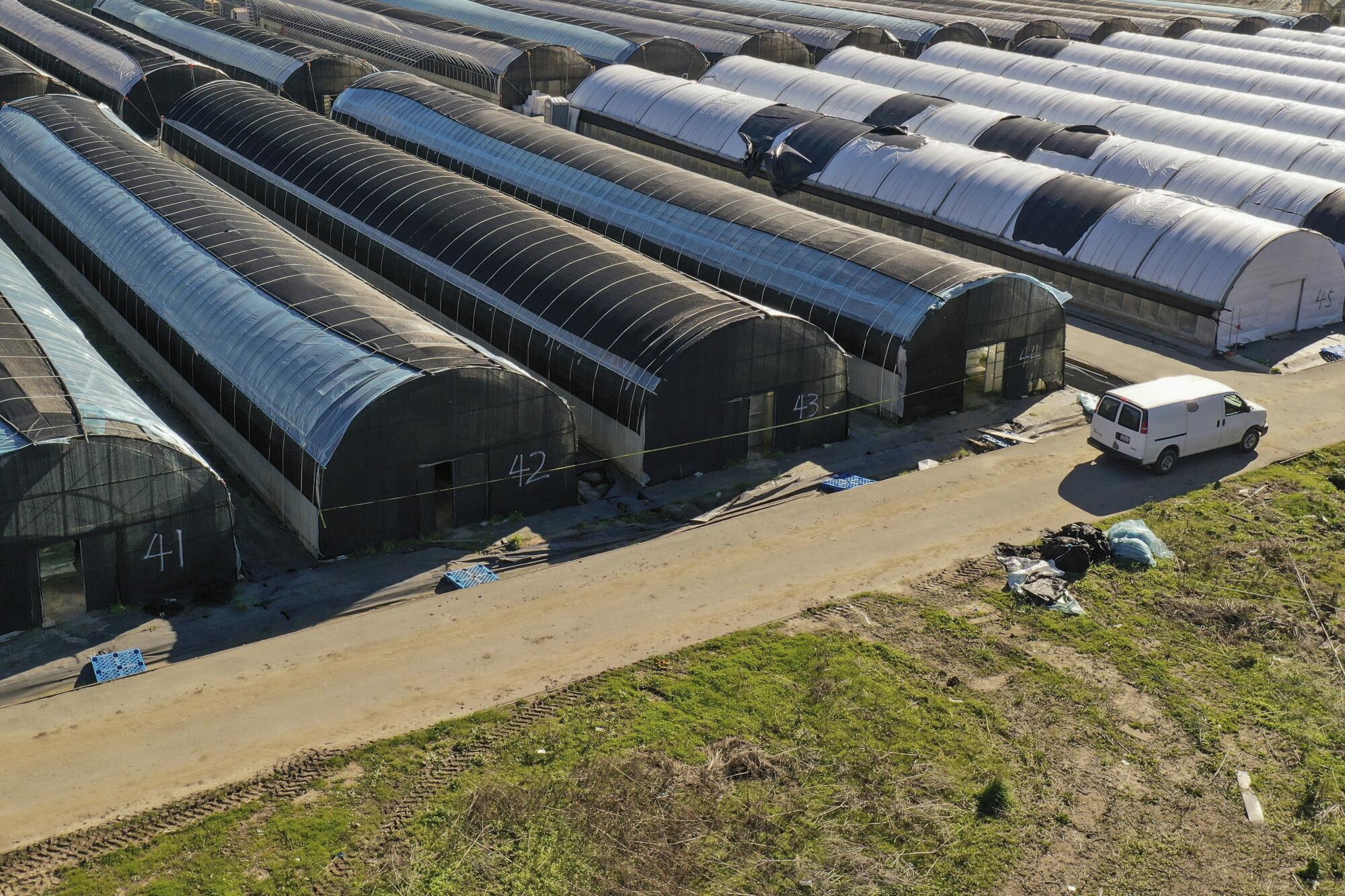
At California Terra Farm, the site of the first attack, workers were paying about $300 a month in rent, Oates said.
The goal is to give workers options, something they often do without, said Judith Guerrero, executive director of Coastside Hope, which provides services to the unhoused, elderly and families living below the poverty level in the farming, hotel, restaurant and domestic service industries. She said workers have told her they have struggled with headaches, sleeplessness and anxiety since the shooting.
“[Farmworkers] have expressed they don’t feel safe,” Guerrero said. “We really emphasized that if you’re not ready to go back to work, don’t go back to work.”
Chunli Zhao told NBC Bay Area he carried out the two shootings that left seven of his co-workers dead, and claimed that he suffered years of bullying.
The Times attempted to reach farmworkers affected by the shooting but was unsuccessful. Organizations that are providing services to the workers and their families said they could not be made available for interviews at this time.
The two farms were shut down while police collected evidence and surveyed the crime scene. Affected employees, the majority from California Terra Garden who lived on site, were staying at a local hotel while the investigation took place, and they were provided with warm meals, new clothes and counseling services. County officials, Coastside Hope and Ayudando Latinos A Soñar, a local nonprofit group that advocates for agricultural workers, provided workers with financial assistance as well.
Authorities said an argument with a supervisor and a co-worker at California Terra Garden over a $100 repair bill prompted the suspect, whom authorities have identified as Chunli Zhao, 66, to grab a gun and kill them. San Mateo County Dist. Atty. Steve Wagstaffe said the alleged gunman told investigators he then went out targeting other co-workers with whom he had disagreements in the past.
California Terra Garden announced Jan. 26 it would construct new and permanent employee housing, which could take a year to complete.
The company’s plans to build new units comes after it was discovered the previous RVs and mobile homes that farmworkers lived in lacked permits and inspections from the county. It also follows an announcement from state officials who said they opened investigations into labor and workplace practices at both farms.
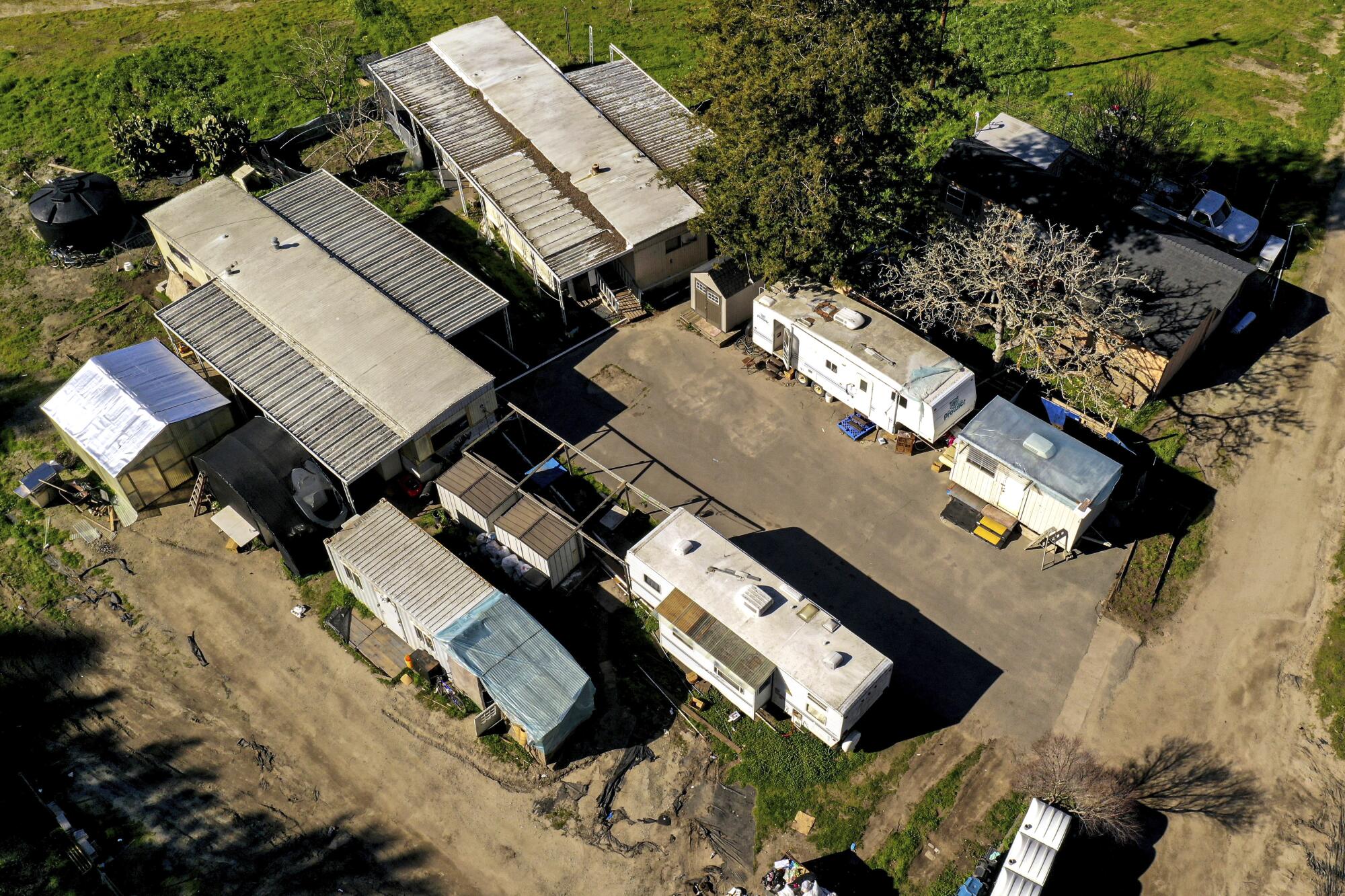
Some workers asked about going back to work, inquiries that advocates believe are because they are worried about pay or losing their jobs.
“They know what them not going to work could mean, and just being farmworkers, they feel a great sense of responsibility, but I’m not sure that it would be easy going back to work,” Guerrero said. “A lot of them saw what happened, a lot of them heard the shots.”
Accounts from witnesses inside Star Ballroom Dance Studio paint a clearer view of what happened when a man walked into the Monterey Park studio armed with a semiautomatic pistol.
Guerrero said one young mother told her she used to leave her younger child with her older daughter in their home in California Terra Garden while she worked or ran errands. Now she can’t imagine doing that again.
Others have said they no longer want to live near where their co-workers were gunned down in California Terra Garden, which happened close to where many of the workers and their families reside, officials said. Children who had just finished school witnessed the shooting.
“I heard from someone inquiring if there was a possibility to acquire a new job,” Guerrero said.
The organization is looking for homes for about 18 households at the moment, she said, including families and single workers from both farms.
Belinda Hernandez-Arriaga, executive director and founder of Ayudando Latinos A Soñar, or ALAS, said workers were still visibly traumatized by the shootings and some are “physically not well.” Many are only just beginning to process what happened, she said.
Other advocates also questioned workers’ eagerness to return.
“The people that witnessed the shooting, it’s a trauma that’s not going to be easy to get rid of,” said Joaquin Jimenez, the vice mayor of Half Moon Bay and the farmworker program director for ALAS. “A lot of them want to keep working, but others want to work in another place.”
Elizabeth Strater, spokesperson for the United Farm Workers, said the union was working with local groups on employment options for workers seeking new opportunities, whether in Half Moon Bay or in other agricultural communities in the state.
But organizations are up against several challenges.
After Huu Can Tran, Chunli Zhao is the second Asian American man this week to be accused in a mass shooting of other Asian Americans in California.
Many of the families and workers at the farm have resided in the community for years. Finding new jobs could mean uprooting entire families.
There is also the issue of workers’ immigration status. Advocates said witnesses and victims of the mass shooting will be seeking U visas, which are issued to witnesses and victims of crimes, but the process could take some time.
“If we move them out of here, it could just add to their shock,” Guerrero said. “We’re being very ambitious, but we’re hopeful we can get them better options.”
Although the Half Bay Moon shootings have been described by authorities as workplace violence, the rampage also occurred at the heart of farmworkers’ community: near their homes where families retreat at the end of the day, gather around outdoor stoves and grills, and children run and play.
“It’s not just any place for them, this is their lives,” Jimenez said. “This is where they felt safe, until this happened.”
Outside the hotel where the workers are staying, two younger men sat on a bench quietly, looking at their phones last week. A woman sat crying and talking on the phone in a parked car nearby. A Times reporter asked how they felt about going back to work.
“We’re OK,” they said, their faces sullen and their eyes fixed on the pavement.
More to Read
Sign up for Essential California
The most important California stories and recommendations in your inbox every morning.
You may occasionally receive promotional content from the Los Angeles Times.
